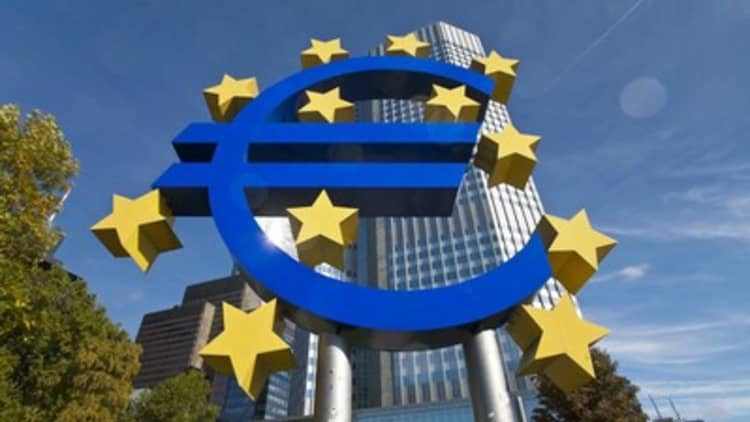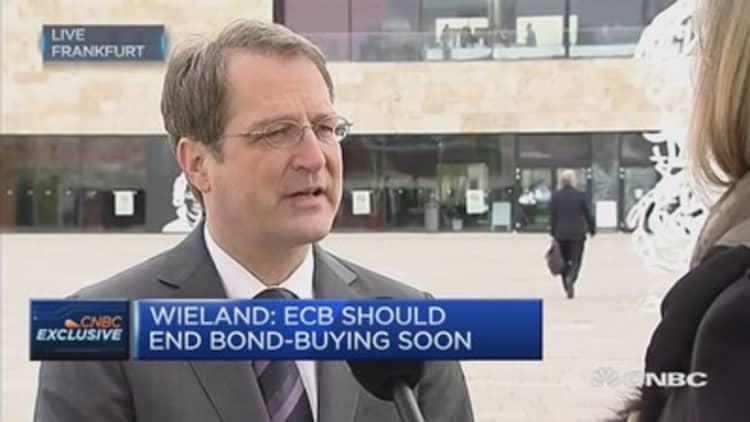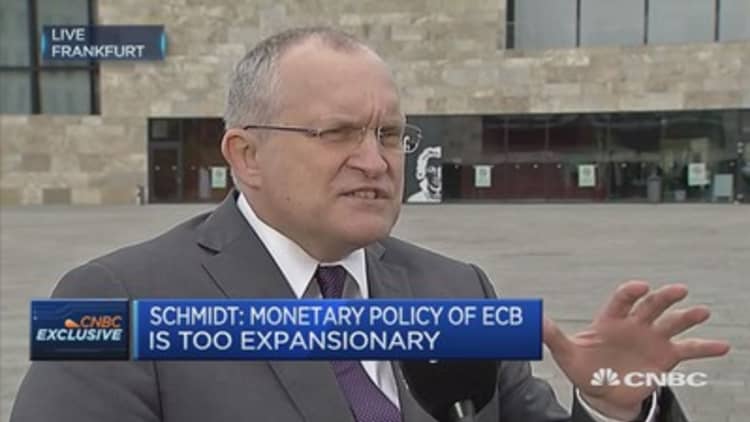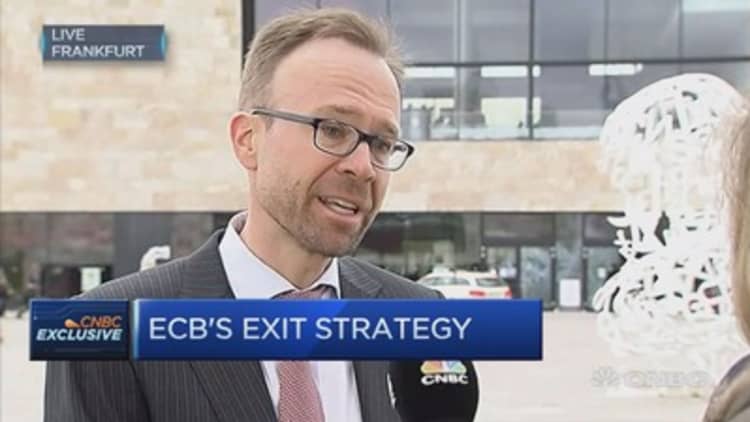
The battle of words between Germany and the European Central Bank (ECB) is heating up once again and is managing to affect the exchange rate of the euro zone's single currency.
ECB President Mario Draghi said Thursday morning that its current monetary policy stance is adequate and there is no need to start tightening. The euro moved lower against the dollar on his remarks. The currency had been trading slightly up on the day, but fell after Draghi's comments, hitting a three-week low of $1.0629.
But, Bundesbank President Jens Weidmann, asked later on Thursday for an unwinding of stimulus. He told a conference in Germany that the ECB should be careful to avoid its policies making more harm than good. "I could absolutely envisage a less expansionary policy," he said.
"Given that EONIA futures (Euro OverNight Index Average, which is an average of all overnight unsecured lending transactions in Europe) earlier this week had completely unwound their March spike (on the view the ECB could tighten before ending PSPP (bond buying program)) the balance of risks suggests something hawkish could be found in the minutes or Weidmann's speech today, which could lift the EUR. We have
This battle over the ECB's monetary policy has been a long one. The German Finance Minister Wolfgang Schaeuble has also stepped into the debate, asking central banks to gradually exit their loose monetary stances. Whereas German officials argue that negative rates and ultra-loose monetary policy are hurting banks' balance sheets, the ECB claims that its action is entirely linked
Though

Volker Wieland,
"I think since 2013-14, we've had a steady improvement in growth, growth has been about 2 percent, inflation has moved up quite quickly, if you look at the overall measure and it's always been well in positive territory if you look at core measures or if you look at GDP deflator, which are the goods and services we produce and that's why we have been saying for a while that the ECB should be getting out of this huge asset purchase program."

Christoph Schmidt, chairman of the German Council of Economic Experts, added: "At some point we need to have a normalization and our view is that this should be communicated now because you have to phase out the asset purchase program, you have to end it at some point, and not to have it too disruptively; one has to announce it beforehand. So now would be the time."
No change until the end of the year
Despite improved headline inflation figures and political pressure, expectations are that the ECB will not change its policy this year. Jan Hatzius, chief economist at Goldman Sachs, told CNBC on Thursday: "I wouldn't expect an actual exit this year," adding that indeed there will be talks on the subject but not decisions.

Paul Sheard, S&P's chief economist, told CNBC on Thursday that he was "more in the Draghi camp" when asked whether he would agree with the German criticisms.
"I think after a sustained period of low inflation, weak growth, with still unemployment relatively high in the euro zone … Now is not the time to be hitting the exit button," Sheard said.


